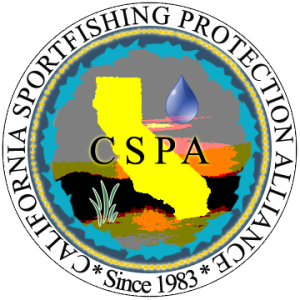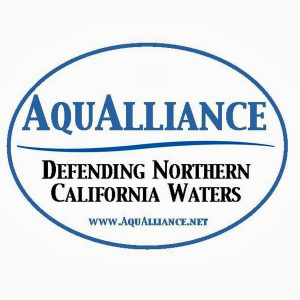C-WIN, CSPA, and AquAlliance vehemently oppose the San Luis Drainage Resolution Act
C-WIN, CSPA and AquAlliance vehemently oppose HR 4366, the San Luis Drainage Resolution Act sponsored by Rep. David G. Valadao (CA-21).

This proposed legislation would approve the drainage litigation settlement between Westlands Water District and the federal government. The agreement will increase the federal deficit and lock in annual water subsidies forever. It also converts the district’s current two-year water contracts to a permanent contract for up to 890,000 acre-feet of water annually. For the sake of comparison, the City of Los Angeles uses only 587,000 acre feet in a typical year.
For decades, the district – which consists of fewer than 600 corporate farms -- has irrigated its holdings with taxpayer-subsidized water delivered by the federal Central Valley Project. The district’s croplands contain large amounts of selenium, a toxic element that leaches from the soil when farmers flush their lands with CVP water to remove excess salt. The district then discharges this tainted runoff to Central Valley waterways and aquifers.
The high (or rather, low) points of the agreement include:
- Forgiveness of $375 million owed by Westlands to the federal government for capital repayment of Central Valley Project debt, thereby increasing the federal deficit.
- No additional land retirement. The amount of land Westlands already has retired will be credited to this final figure. The U.S. Fish and Wildlife Service previously recommended the retirement of more than 300,000 acres of this poisoned land.
- A permanent CVP contract for up to 890,000 acre-feet of water a year (subject to the availability of water)
- An exemption from the existing acreage limitations that were drafted to prevent oversized farms from receiving subsidized water.
- No public input on the settlement other than urging Congress to change or reject it.
- Gifting of federal facilities to Westlands, including buildings, canals, pipelines, pumps, headworks and related facilities.
“This deal can be equated with the bank bailout of 2008,” said C-WIN spokesman Tom Stokely. “The wealthy and powerful corporate interests that caused the crisis are allowed to exit the burning aircraft with golden parachutes. It locks in the destructive practices of the district, it continues to subsidize south-of-Delta Big Agriculture with taxpayer money, and it poses a long-term threat to both California’s environment and the state’s water supply. It is crony capitalism at its worse, and it demonstrates once again the corrosive power of money and corporate influence in Washington.”
Bill Jennings, the chairman and executive director of the California Sportfishing Protection Alliance, observed the deal is not only bad for fisheries, water quality and the environment, its also bad for many water contractors.
“It would give Westlands a permanent water contract before all Endangered Species Act litigation is completed,” said Jennings. “In effect, this gives Westlands an advantage over other south-of-Delta contractors.”
Summing up the case against the pact, AquAlliance executive director Barbara Vlamis said congressional approval of the deal “will create a permanent demand for northern California water that will be used to create devastating pollution from land that never should have been irrigated in the first place. It assures continuation of a policy that is destructive, beneficial only to the few and powerful, and ultimately unsustainable.”
The three groups are promoting a better, cheaper, and more equitable alternative. A report by EcoNorthwest, an independent economic analysis firm, confirms that 300,000 acres of selenium-tainted land in the Westlands Water District and three adjacent water districts could be retired at a cost of $580 million to $1 billion. The U.S. Fish and Wildlife Service and the U.S. Geological Survey have reached similar conclusions. Retiring this land and curbing the water contracts associated with it would result in a savings to California of up to 455,000 acre-feet of water, or enough for 2,600,000 urban water users.
The Environmental Working Group estimated that annual subsidies to Westlands range from $24 million to $110 million a year. Further, land retirement is significantly less expensive than Governor Jerry Brown’s plan to build a massive tunnel system to divert water from the Sacramento River for the express benefit of western San Joaquin Valley agribusiness.
Agriculture consumes 80 percent of California’s developed water while accounting for only 2% of the state’s economic output. Our water supplies are limited in the best of times, and drought and climate change are only exacerbating the crisis. Subsidizing corporate agriculture on impaired and toxic lands is hardly a wise and reasonable use of our water. Congress must not approve this catastrophically flawed agreement before it is implemented. Californians need to tell our federal legislators that we don’t want another egregious and inequitable corporate bailout.
Contact Information:
Tom Stokely, C-WIN 530-926-9727 cell 530-524-0315
Bill Jennings, California Sportfishing Protection Alliance 209-464-5067 cell 938-9053 www.calsport.org
Barbara Vlamis, AquAlliance 530-895-9420 cell 530-519-7468 www.aqualliance.net


